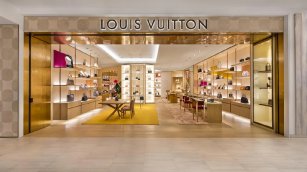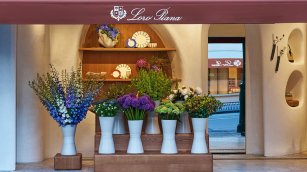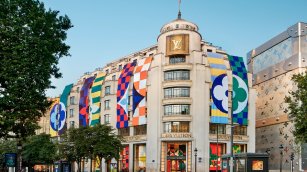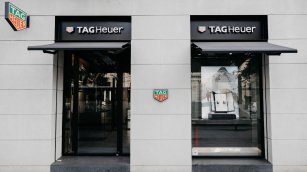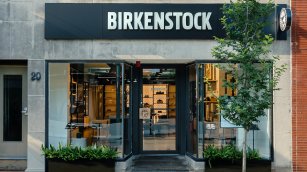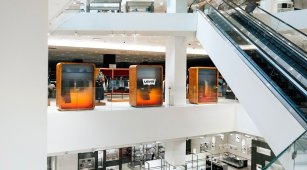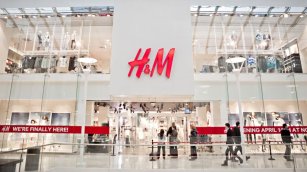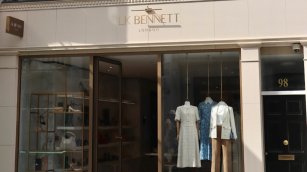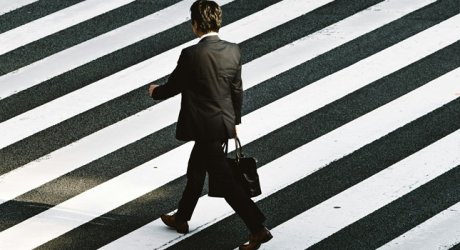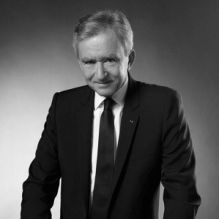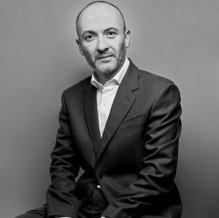Luxury and Beauty Take Center Stage in Paris at Record-Breaking VivaTech 2025
Intelligent robots, superchips from Nvidia and LVMH or L’Oréal technology leaders: VivaTech 2025 broke records with 180,000 professionals and 14,000 start ups, consecrating Paris as the capital where luxury converses with AI.
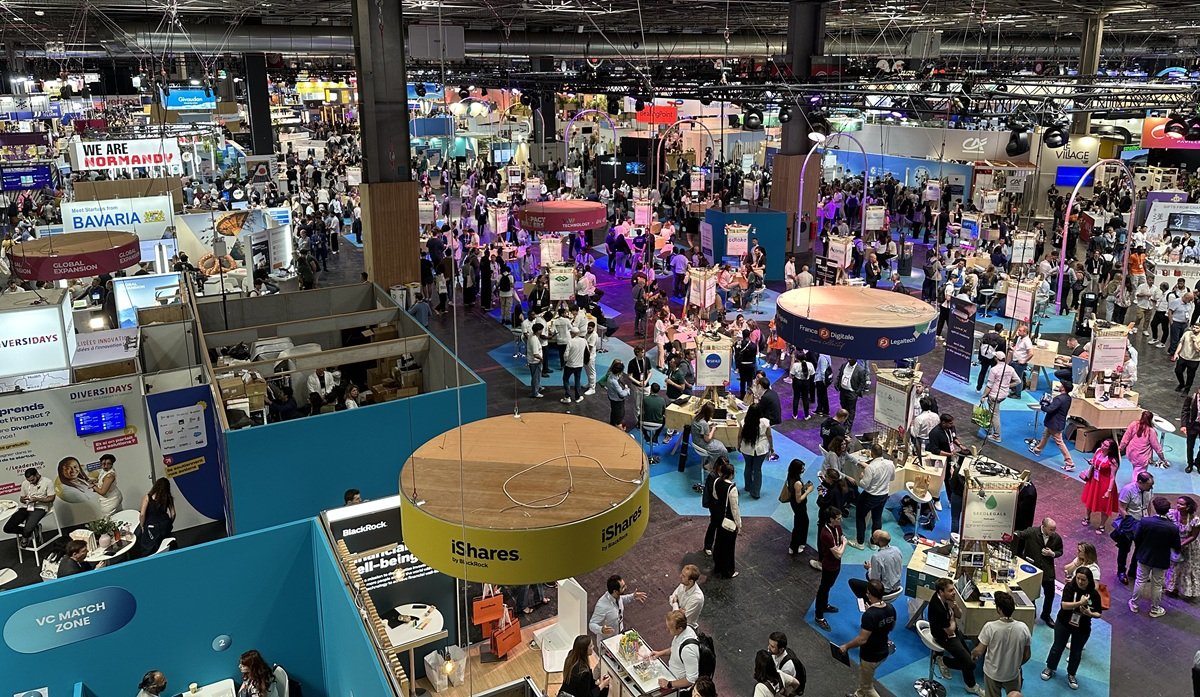

Between quasi-human robots, Tesla prototypes that look like something out of a sci-fi movie and smart displays straight out of a dystopian Black Mirror future, VivaTech 2025 turned the Porte de Versailles venue into a full-scale laboratory where artificial intelligence mingled with luxury fashion and laboratory cosmetics. At a time when AI is reshaping the foundations of all sectors, Paris decided to lead the conversation from where it knows best: the nexus of technology, luxury and beauty. At the 2025 edition of VivaTech, the most important innovation fair in Europe, groups like LVMH and L’Oréal made it clear that the future of consumption is not only programmed, it is also designed, made up and dressed. Technology, far from replacing savoir-faire, should become its most powerful ally.
With more than 165,000 visitors, 13,000 startups and official delegations from 120 countries, VivaTech consecrated its latest edition, held last week, as the most ambitious to date. Founding partner LVMH’s pavilion, dubbed Dreamscape, was once again one of the most visited, with innovations applied to logistics, in-store experience and content creation. In parallel, L’Oréal positioned itself as a reference of digital leadership, with one of the most spectacular and interactive stands, with campaigns starring generative artificial intelligence.
One of the priorities of French luxury group LVMH at VivaTech was to emphasize that digital transformation is not incompatible with legacy. Yann Gilles, director of distribution and financial solutions at Louis Vuitton, put it bluntly. “Our goal is not just to accelerate, but to optimize,“ the head assured; “the question we are asking ourselves now is whether all the stock should be available online or whether it makes sense to keep part of the exclusive offer in store.
Louis Vuitton has accelerated the deployment of Rfid technologies, with visible operational improvements that are, however, arriving in luxury with a significant delay compared to the implementation of retail giants such as Inditex. According to Gilles, the speed of operations has increased by 50%, inventory management is twelve times faster and product scanning has quadrupled. In addition, the zoning system makes it possible to locate the exact position of each item in the store, in the style of Zara’s application. This precision contributes to a smoother customer experience, but also to a more controlled omnichannel strategy, where each channel maintains a complementary role.
Likewise, the Dreamscape platform welcomed hundreds of visitors, becoming one of the main attractions of the event, with a catwalk of immersive experiences where each maison combined savoir-faire and data science. Ten houses (Louis Vuitton, Dior, Guerlain, Bvlgari, Sephora, Rimowa, Moët & Chandon, Hennessy, Loro Piana and Moët Hennessy) exhibited projects developed with fourteen technological partners, ranging from cashmere traceability to personalized robotics for X.O. bottles.

LVMH seeks to digitize luxury without losing its soul
Bvlgari, together with the technology company Dev4Side, showed its jewelry connected by micro-engraving and artificial vision that allows access to the genealogy of each piece from a cell phone. For its part, the spirits firm Moët Hennessy presented with Genesis an algorithm that groups environmental data to calculate a vineyard resilience index and adjust regenerative viticulture practices; while Guerlain cosmetics celebrated the centenary of Shalimar by digitizing bottles in three dimensions and orchestrating an olfactory musical piece together with Ircam Amplify.
Sephora, as one of the biggest names in FMCG reach, showed two prototypes already in business: an interactive pinball to launch a new product and Signifi self-service kiosks, already deployed on U.S. and Canadian campuses. Rimowa’s luxury suitcases, meanwhile, showed how Solaya reduces the photographic process of its reconditioning line to one hour using hyper-realistic artificial intelligence to preserve the patina of each suitcase.
Traceability was at the heart of the initiative of the Italian house Loro Piana, which invited visitors to follow the journey from the Capra Hircusgoat to the final sweater with an interactive table created together with MachineZero; while Moët & Chandon boasted a logistics system for evaluating grapes that in 2024 reviewed 16,000 pallets in less than three weeks thanks to intelligent vision.
Beyond the exhibition, the luxury conglomerate once again sponsored the technological start-ups of the future. The grand finale of the LVMH Innovation Awards, held on the second day, crowned entrepreneurial efficiency went to New York-based Kahoona, founded by ex-Amazon Gal Rapoport, which has been working for several months with Dior on its ecommerce. The most promising project was none other than Omi, which has developed a virtual photo studio technology implemented by the Guerlain makeup brand. And finally, the recognition for impact went to Paris-based Genesis, which specializes in analyzing and improving soil health through data technology.
Collaboration, traceability and legislation: the priorities of Vestiaire Collective, LVMH and the Ellen MacArthur Foundation.
“We need to collaborate with our rivals and our suppliers,“ warned Alexandre Capelli, deputy director of environment at the LVMH conglomerate; “a practice that works with Dior today can be implemented with Chanel tomorrow, and only then will scalability cease to be the Achilles’ heel of green innovation. This vision of collaboration was endorsed by Alice Bodreau, head of partnerships at the Ellen MacArthur Foundation, who noted that “industry change will be collective or it won’t be”.
Capelli defended that “much of the impact comes from the production of raw materials,“ stressing the priority of tracking the entire chain. “We are opening our tools to suppliers because if they don’t scale, neither do we,“ he assured. The executive also advanced the acceleration of in-store repair services, as Loewe already does, and refill systems to extend the life of cosmetic products at Sephora. On the future ecoscore label in France, the expert regretted that the first European proposal uses “indecipherable” figures and urged to choose understandable letters as in the case of food.
Dounia Wone, Vestiaire Collective’s impact director, welcomed the success of the company’s Ban Fast Fashion campaign , which banned the sale of fast fashion garments on the platform. “Ninety-two percent of our affected users have stayed on the platform; they consume less, but better.“ In addition, the head defended the second meno as a “natural choice,“ cited the collaboration with Emily in Paris as a tool to create impact and accelerate the overall evolution and, finally, called for scaling the circular model. “If you pay full price for Zara, you can afford secondhand premium,“ she sentenced.
Artificial intelligence also fuels the green business. Sweep, a climate data platform already used by premium brands such as Burberry and Lacoste, presented new modules that monetize emissions reductions. Its founder, Rachel Delacour, stressed that “there are finite resources; whoever does not move to a low-carbon chain will not exist in ten years”.
Artificial intelligence to detect counterfeits or improve the customer experience
Beyond the large corporations, the edition was notable for the number of technological solutions applicable to retail. This was the case of the French company Vrai, which demonstrated 99.7% reliability in detecting counterfeits from a simple photo. Its machine learning checks the image against 180,000 records of counterfeit products collected over six years with the support of police and government institutions. “In less than three seconds, the app identifies authenticity,“ explained development manager Thilo Fuchs. While the most prominent application has to do with the pharmaceutical industry, France’s Lacoste already uses the system to detect fraudulent returns.
The L’Oréal Group, another major partner, also exhibited at VivaTech with the clear ambition of becoming a leader in the technological revolution in the beauty sector. With a booth designed to be one of the most interactive at the event, the French company demonstrated that AI is not only for streamlining processes, but also for reinventing the sensory. Nicolas Hieronimus, CEO of the company, was emphatic in his speech: “New technologies such as generative artificial intelligence are redefining the beauty industry and its meaning for consumers”.
One of the most interesting interventions for the sector was the one developed in collaboration with Google. Aurora Straton, creative director at the technology company, explained that artificial intelligence is forcing brands to refine their briefs and rethink creativity. “AI doesn’t eliminate art direction, it demands it,“ she said. Specifically, Flow was presented, a tool for the creation of videos under careful creative direction that allows iterating in real time.
Jakob Frei, project manager at Lancôme, stressed that artificial intelligence is transforming the workflow toward a circular model. “We no longer work in sequential phases, but in cycles that allow us to continuously adjust, improve and experiment. We are moving from a hypothetical approach to a more concrete one,“ he said.
For his part, Hungarian artist László Gaál, who collaborates with several of the group’s brands, defended the democratization of the tool. “There are no good or bad prompts; a simple verb can change the outcome,“ he assured; “generative video will be so fast that we will go from versions to real time.
Need for a “sovereign artificial intelligence”, according to Macron
In terms of smart glasses, EssilorLuxottica and Ray-Ban along with Meta were under the spotlight. “Google Glass failed because it forgot the aesthetic component,“ recalled Paul du Saillant, CEO of the optical giant EssilorLuxottica. The company is preparing an aggressive expansion: more styles and possible collaborations with other brands so that connectivity does not give up design.
Beyond fashion, one of the most anticipated interventions came from Jensen Huang, founder and CEO of Nvidia, who traced the evolution of AI in three waves: first perceptual, then generative, and now agentic, focused on agents capable of reasoning, planning and acting. “The next phase will be its physical embodiment through robotics,“ he stated.
The company also announced that its data centers will cease to be passive infrastructures and become “ tokenfactories,“ the modern equivalent of intelligence production plants. Europe, according to Huang, must stop being a consumer of AI and become a producer. In this regard, he highlighted the strategic alliance with the French startup Mistral AI.
French President Emmanuel Macron insisted that Europe must bet on sovereign artificial intelligence that respects its cultural values. “It’s not just about competitiveness, but about protecting our intelligence, our culture and our history,“ said the politician.

